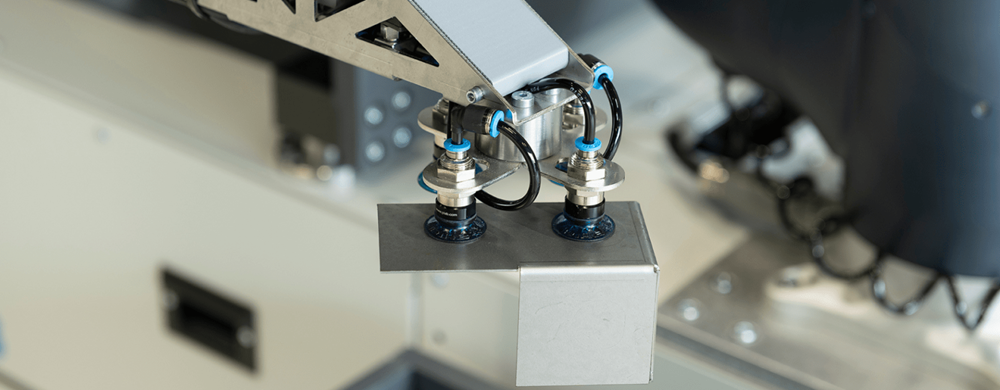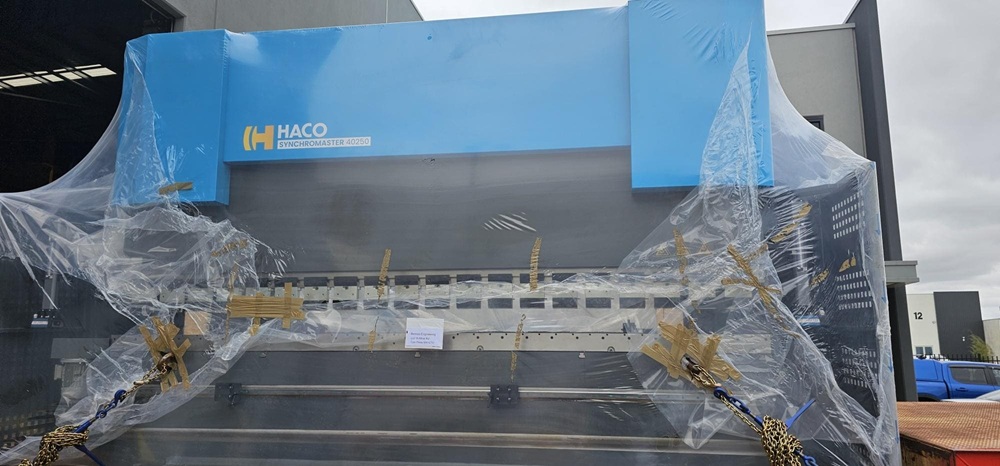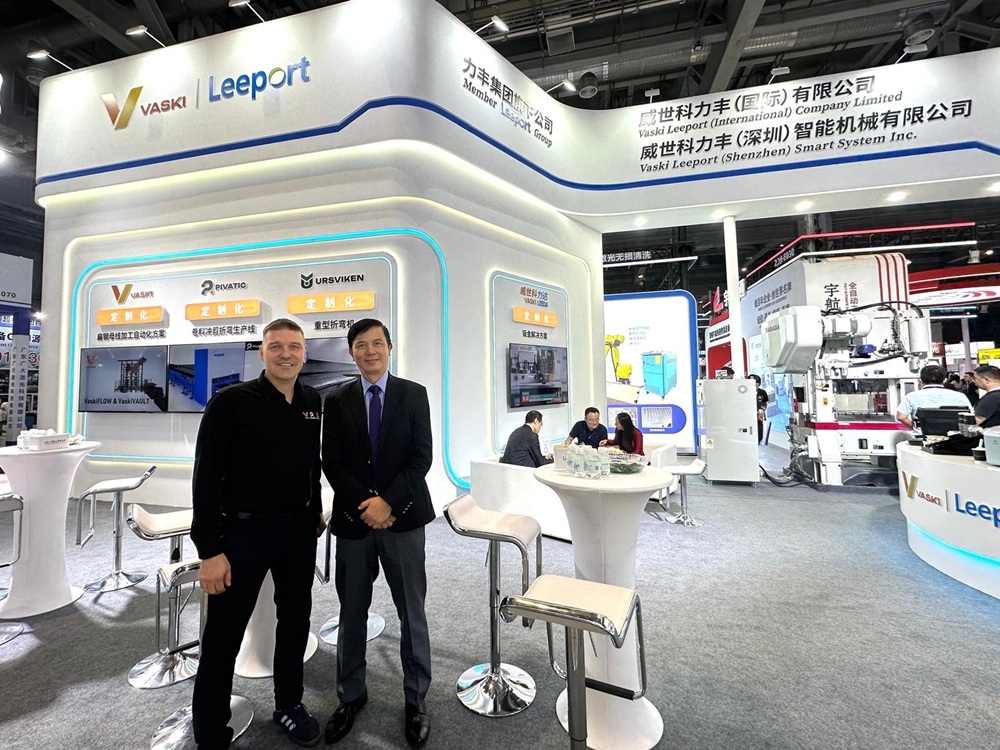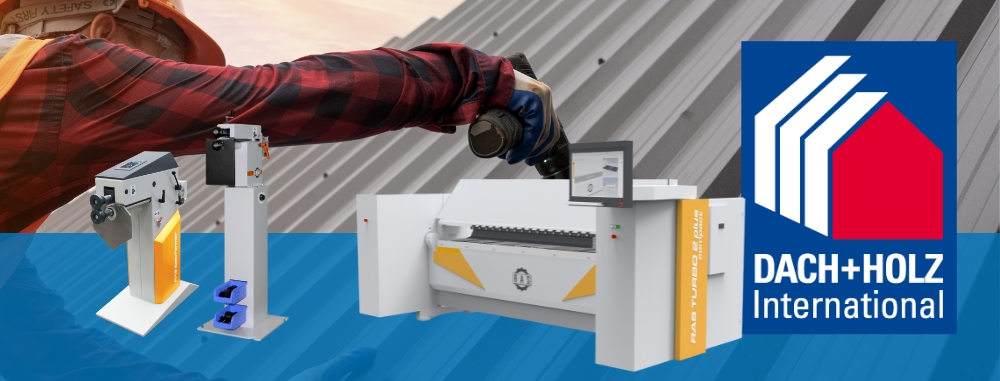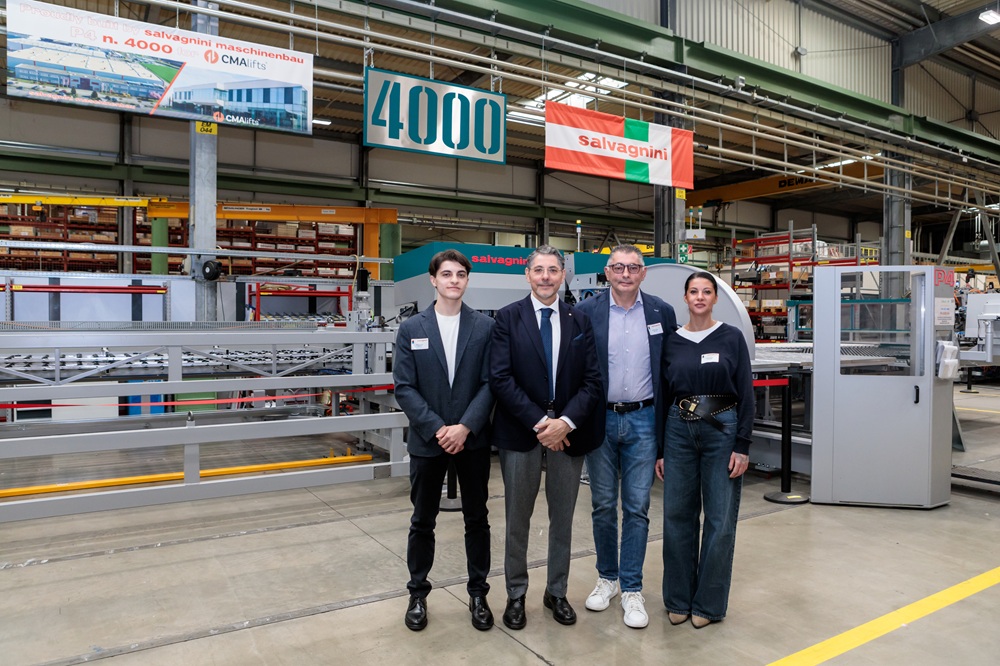LVD has introduced Ricobb, a collaborative robot (cobot) bending system that integrates with any LVD press brake installed since 2001. Developed by LVD Robotic Solutions (LRS) – the company’s robotic automation division – Ricobb offers a flexible and cost-effective way for sheet metalworking companies to boost bending productivity, overcome labour shortages, enable lights-out manufacturing and adapt quickly to shifting production demands.
Compact and user-friendly, Ricobb is easily moved, docked and programmed. It can be set up and commissioned in just a few days.
Ricobb is a mobile, highly adaptable cobot, reports LVD. Deployed on a press brake, it takes over the bending of small, simple parts and it can be quickly reassigned to another machine as production needs change. When docked, Ricobb automatically identifies the press brake, so relocation is quick and easy. The cobot delivers consistent, reliable performance and operates autonomously to maximise press brake utilisation.
The new cobot is easy to program, requiring minimal training. Its intuitive, icon-driven interface eliminates the need for advanced programming skills. Only pick, bend and regrip positions need to be taught. Ricobb learns through simple, guided instruction and automatically records and replicates the actions.
Ricobb offers sheet metalworking companies a cost-effective way to automate repetitive bending tasks. It adds capacity to existing press brakes without requiring infrastructure changes, delivering reliable, efficient performance with a fast return on investment. The cobot also offers enhanced flexibility through customisable gripper extensions tailored to specific applications. A variety of extensions can be created within the cobot’s payload limits to suit varying production needs.
LVD Robotic Solutions (LRS) was established in 2022 following the acquisition of KUKA Solutions Benelux.
More information www.lvdroboticsolutions.com






